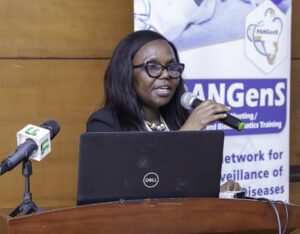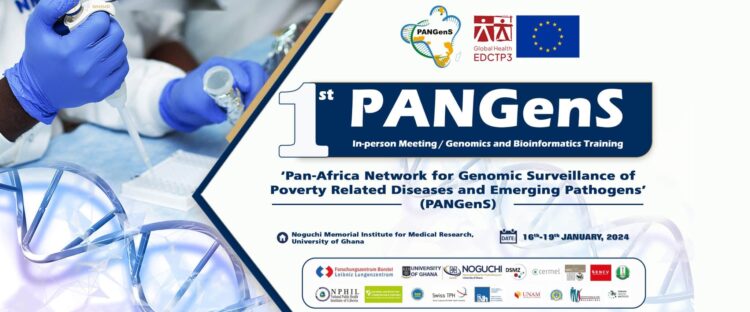It was the first in-person meeting in Accra for the Noguchi Memorial Institute for Medical Research on the Pan-African Network for Genomic Surveillance of Poverty Related Diseases and Emerging Pathogens project. The meeting was convened to establish the causes and transmission of diseases as well as the evolution of drug-resistant pathogens in Africa and Europe.

Data from the United Nations show that annually 8 million people contract tuberculosis (TB), and between 300 million and 500 million contract malaria within the same period. Five million out of the number die from these diseases. But from medical research, the diseases are all treatable and preventable with early detection.
The first meeting of the Pan-African Network for Genomic Surveillance of Poverty Related Diseases and Emerging Pathogens consortium project seeks to use genomic epidemiology, of tuberculosis, malaria and emerging and re-emerging pathogens in Africa to better understand the dynamics of disease transmission, and evolution of drug-resistant pathogens.

The study also aims to increase Africa’s capacity in bioinformatics, genomics, genomics data management, biobanking, and promote data sharing. For the Pro Vice-Chancellor for Research, Innovation and Development at the University of Ghana, Professor Felix Ankomah Asante said the objective is to improve the health of Africans with innovations in disease surveillance.
The director of the Noguchi Memorial Institute for Medical Research Professor Dorothy Yeboah-Manu called for more institutional collaboration to expand the project. The PANGenS project which officially began in July 2023 is currently running in fifteen countries, twelve in Africa and three in Europe.

















